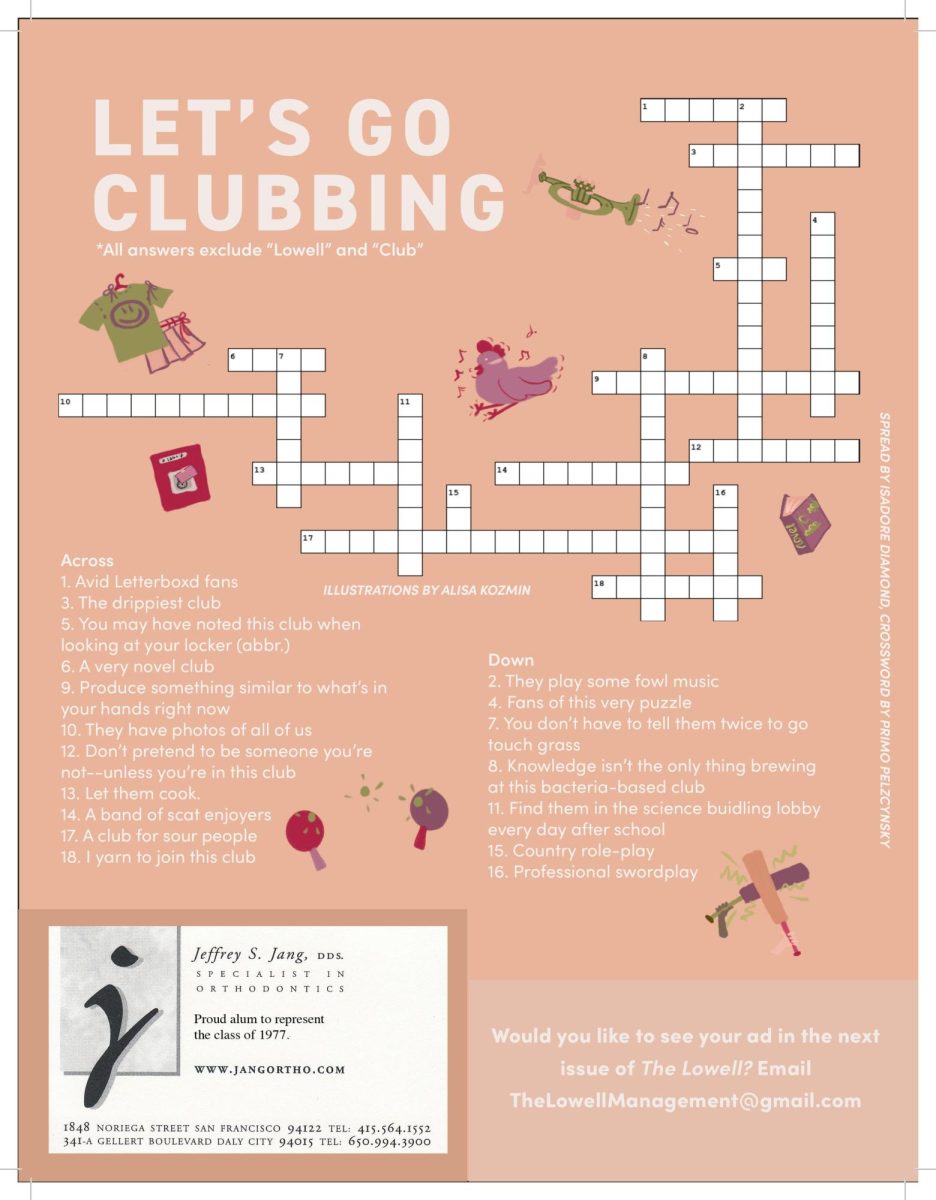Editorial
Originally published on October 15, 2015
Why do we need summer reading? English department chair Meredith Santiago put it bluntly: “We don’t want brains turning to jelly over the summer.”
“We don’t want brains turning to jelly over the summer.”
For years, like other high schools in the district, Lowell has required summer reading for students to practice reading skills over the long break to make sure they don’t fall behind, and also to provide material for the beginning of the school year. Freshman and regular classes read one book, while sophomore honors and Advanced Placement classes read two. From Graceling to Eleanor and Park, many of the recent books, especially those in regular courses, are modern and chosen specifically to encourage the habit and love of reading. However, Lowell does not supply the summer reading books, so students have to get their copies of the books themselves.
Do the summer reading requirements meet their goals? An anonymous survey of 233 students from all grades, by The Lowell, showed mixed results.
- Many students, as much as 20 percent, said they did not complete all of their summer reading. Four percent said they didn’t read the visit web site book at all.
- Not everybody enjoyed the reading. 41 percent said they did not enjoy their book(s) very much, at all, or just didn’t read them.
Nevertheless, many wouldn’t have read anything substantial over the summer without the program:
- Thirty-six percent said that, if not for summer reading, they would not have read at least a full book. Of those students, 11 percent said that they would’ve read less than a full book. 25 percent of them said they wouldn’t have read at all.
The survey’s results show that summer reading is a valuable program. However, there are several issues that should be addressed.
41 percent said they did not enjoy their book(s) very much, at all, or just didn’t read them.
First, summer reading hasn’t been properly accessible to students without the financial means to acquire the books. According to the survey, 54 percent of students either paid for their books themselves or had their parents pay. Even a one-cent used copy from Amazon requires a credit or debit card and $3.99 for shipping and handling, and new copies can cost up to nearly 20 dollars.
Aside from buying the books, 19 percent said they borrowed theirs from a library. Libraries, however, are not always reliable. For example, the whole San Francisco Public Library system has a total of 49 copies of the freshman summer reading book, Graceling, yet approximately 680 students, from Lowell alone, were required to read the book, but all copies were checked out by the end of summer.
Students should not have to rely on public libraries to get their books. California public school students are entitled to “textbooks and instructional materials…to use in class and to take home,” according to the California Education Code, after the 2000 Williams vs California case, a class action lawsuit that said the state failed to provide poor and underprivileged public school students with equal access to instructional materials, among other things.
At Lowell, this rule most importantly protects low-income students. Forty-three percent of Lowell students qualify for free or reduced lunch. The school should at least provide a program to help these students pay for their summer reading books.
Summer reading is a valuable asset to our education
To do this, Lowell would likely need several thousand dollars in funding. This would have to be renewable at least every few years to keep the books current. If the school budget can’t accommodate the expense, then the school should pursue outside funding, like grants from a private donor, the Parent Teacher Student Association or the Lowell Alumni Association.
If Lowell cannot provide financial aid to at least low-income students, then the school should not require summer reading.
The second issue is that many students lack the motivation to finish their books, and, according to the survey, many don’t find the reading interesting.
To address this, the school could allow students to pick their own books, which some classes have done to an extent. Last year, many students in Advanced Placement Cathy Innis’s class suggested Eleanor and Park as a summer reading book, which the English department eventually used. In the spring semester, the English department could come up with a list of suggested books for summer reading and survey student interest.
Summer reading is a valuable asset to our education, a buffer keeping students from losing their academic skills over a long break.






